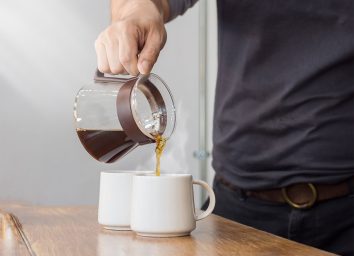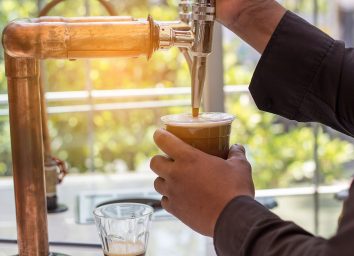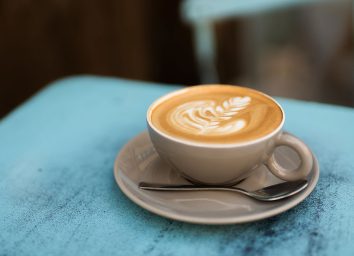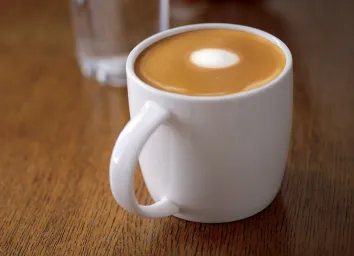The Absolute Best Way to Store Coffee Beans, According to Experts
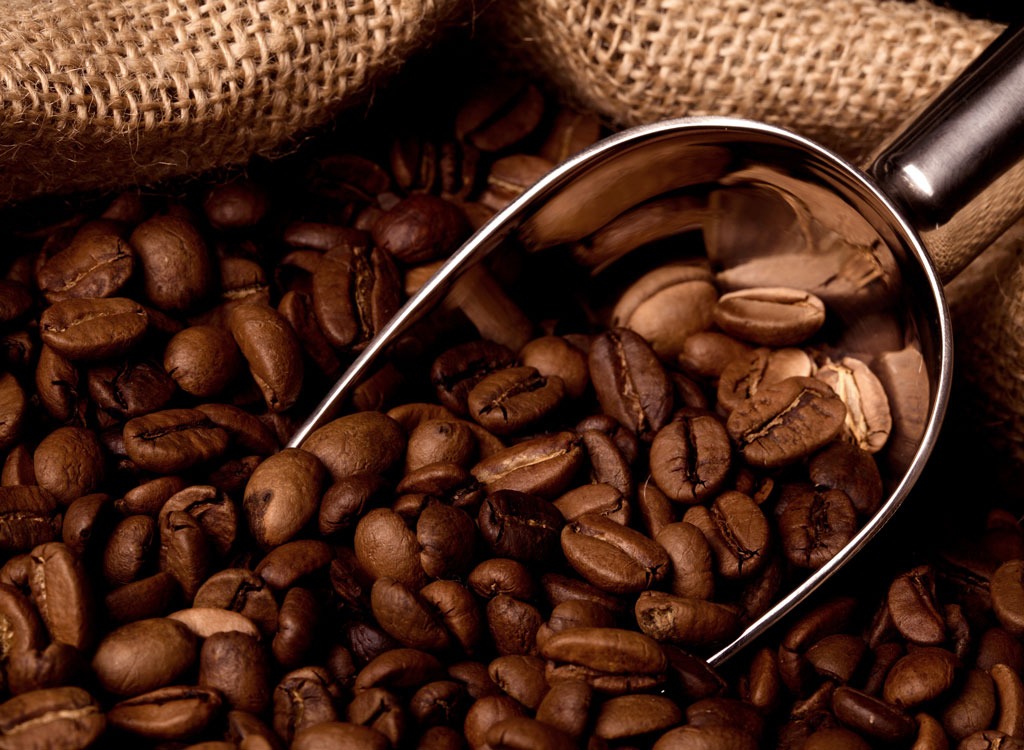
How do you store your coffee beans? Has it ever crossed your mind that you may not be storing them correctly—and that it could be the reason why your coffee’s not as great as it could be? Well, we spoke with two experts in the coffee business to better understand exactly why it’s important to store the beans properly. Because you want your coffee to taste the absolute best it can, right?
Lavazza Training Manager, Kathleen Mccarthy, and Lorraine Walker, owner of Silver Bridge Coffee Company and member of the Specialty Coffee Association and Roaster’s Guild, dish out everything you need to do to keep your coffee beans fresh.
What’s the best way to store coffee beans?
Mccarthy says there are four elements you must account for in order to maintain the freshness of coffee beans: air, humidity, heat, and light—specifically sunlight.
“Once a bag of coffee is opened, the beans can begin to become stale within just a few days, developing a flat, bitter taste and an unpleasant aroma,” says Mccarthy. “The best container in which to store your coffee beans would be airtight and opaque; one with a one-way valve or a vacuum seal would be ideal.”
Walker agrees, and says they should also be stored “away from heat, light, and moisture.”
So, how exactly do air, humidity, heat, and light affect coffee beans? It’s quite simple actually: they all cause the beans to become stale.
“This container should be kept in a cool, dark location. For example, a cabinet located away from the stove and any other heat-generating appliances,” says Mccarthy.
Can you store coffee beans in the fridge?
Both experts agree that while you can, it’s not necessary to keep the beans refrigerated.
“You will get your best results from storing in a cool, dark place like your cupboard or pantry,” says Walker.
“Coffee naturally absorbs odors from the environment, as much as the baking soda you may store in the fridge does. So if your refrigerator is frequently filled with aromatic foods, your coffee will begin to take on those flavors if the container it’s in is not 100 percent airtight,” says Mccarthy.
Um, coffee that tastes like garlic? No, thanks.
“Refrigerators are also quite humid, and that moisture could seep into your beans and cause them to become stale more quickly if the container is not completely airtight,” she explains. “For the most enjoyable cup of coffee, your roasted beans should be ground for each individual brew, and stored for no longer than a week.”
Again, a non-transparent airtight container like this one is key.
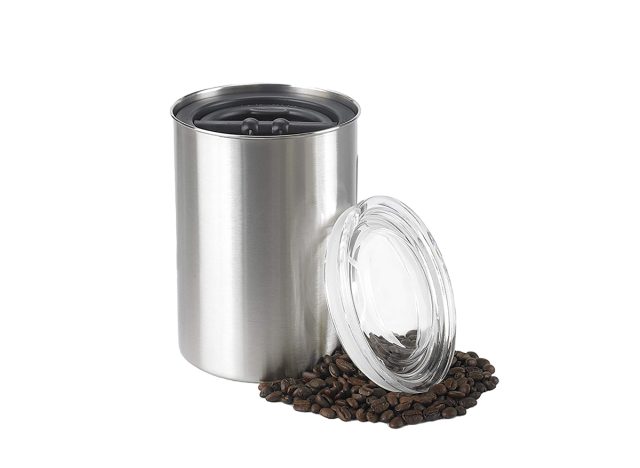
If you like chocolate raspberry flavored or hazelnut-infused coffee for example, then you may want to be cognizant of what storing them may do to the flavors.
“If you buy flavored coffees, be aware most containers will absorb that flavor and impart it to any future coffee you’re storing,” says Mccarthy.
Do you store coffee grounds differently than coffee beans?
Both Walker and Mccarthy say that you should store both coffee grounds and beans in a similar environment, as the same factors will affect each of their flavors in the exact same way.
“Of course, since more of the surface is exposed to oxygen in ground coffee, it will [become] stale more quickly than the whole bean. Your best practice is to grind the coffee you plan to brew each morning. However, be careful about the kind of grinder you buy,” advises Walker. “Blade grinders grind unevenly, leaving you with powder in the center and coarse grounds at the edge. This uneven grind will not produce your best cup of coffee.”
Walker says a Burr grinder will yield the most evenly ground coffee, which in part will allow for more proper extraction of flavor.
“If you can’t grind your beans fresh for each brew, be particularly careful with storage, and be aware that your daily coffee won’t taste as it should,” warns Mccarthy. “Flavors and aromas will decrease in complexity, and the coffee will acquire a rancid taste.”
Water is actually an important component when it comes to coffee beans.
The temperature of the water is pivotal in the brewing process.
“Make sure you are getting the water to an optimal temperature to extract the most flavor from your coffee,” says Walker. “You want your water temperature to be between 195-205 degrees Fahrenheit in order to brew the optimal cup of coffee at home.”
Walker also says the quality of water you use to brew coffee is also an important factor. For example, if you don’t typically drink the tap water at your house, then don’t use that water for your coffee either. Timing is another factor to be aware of.
“When it comes to drinking a great cup of coffee, you should be asking ‘when was my coffee roasted’ not ‘when does this coffee expire,'” says Walker. Now, are you ready to get brewing?
